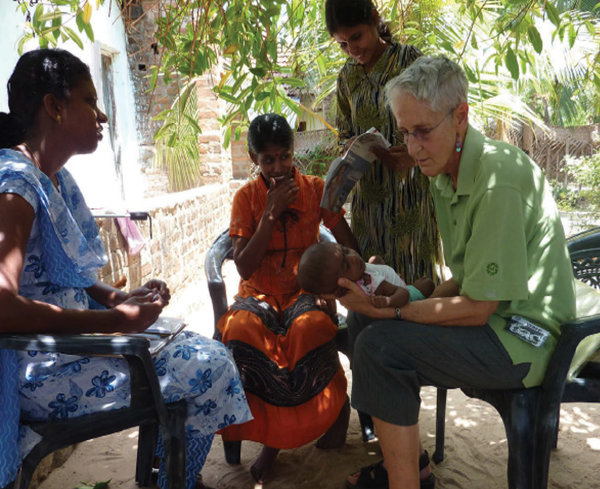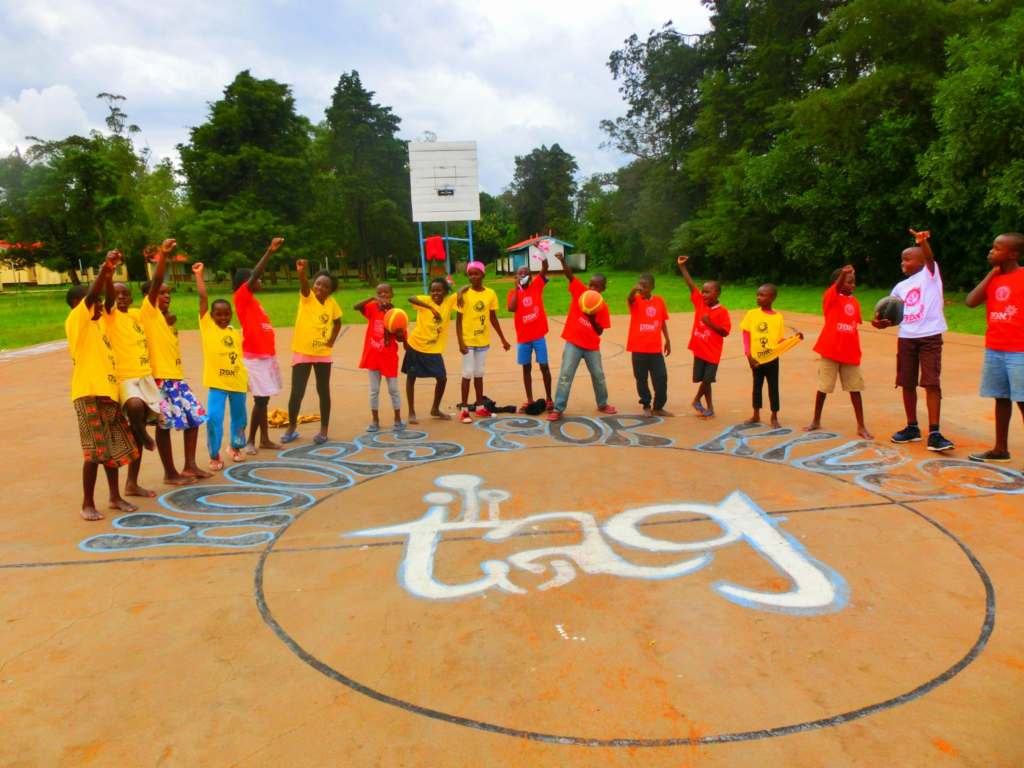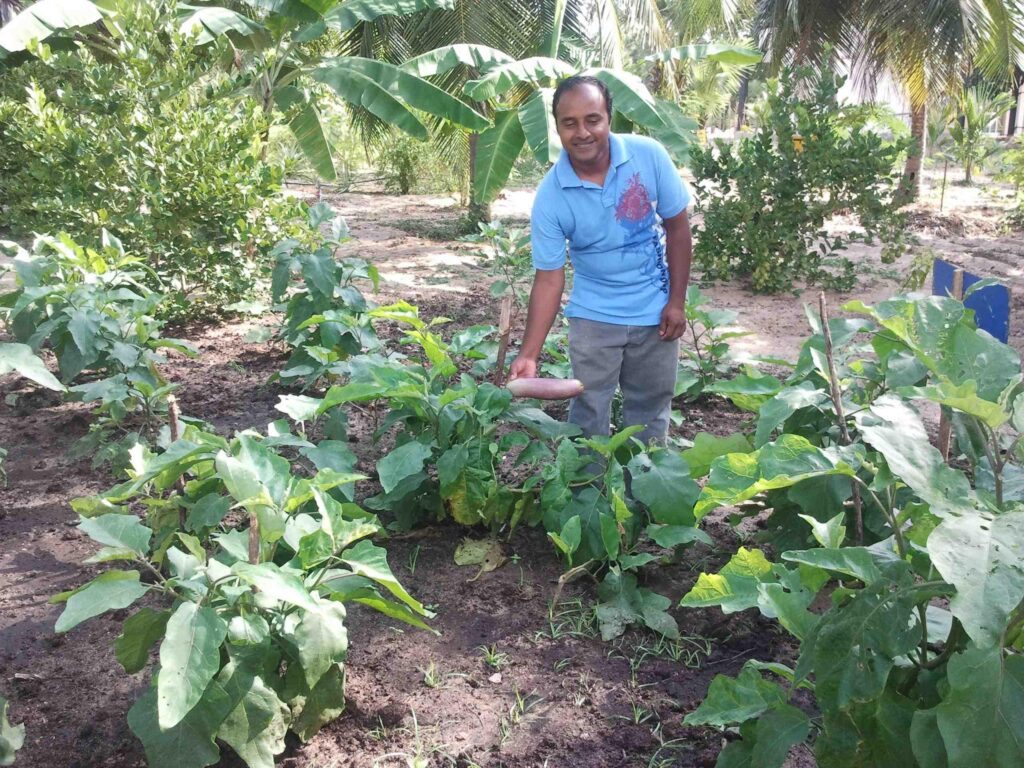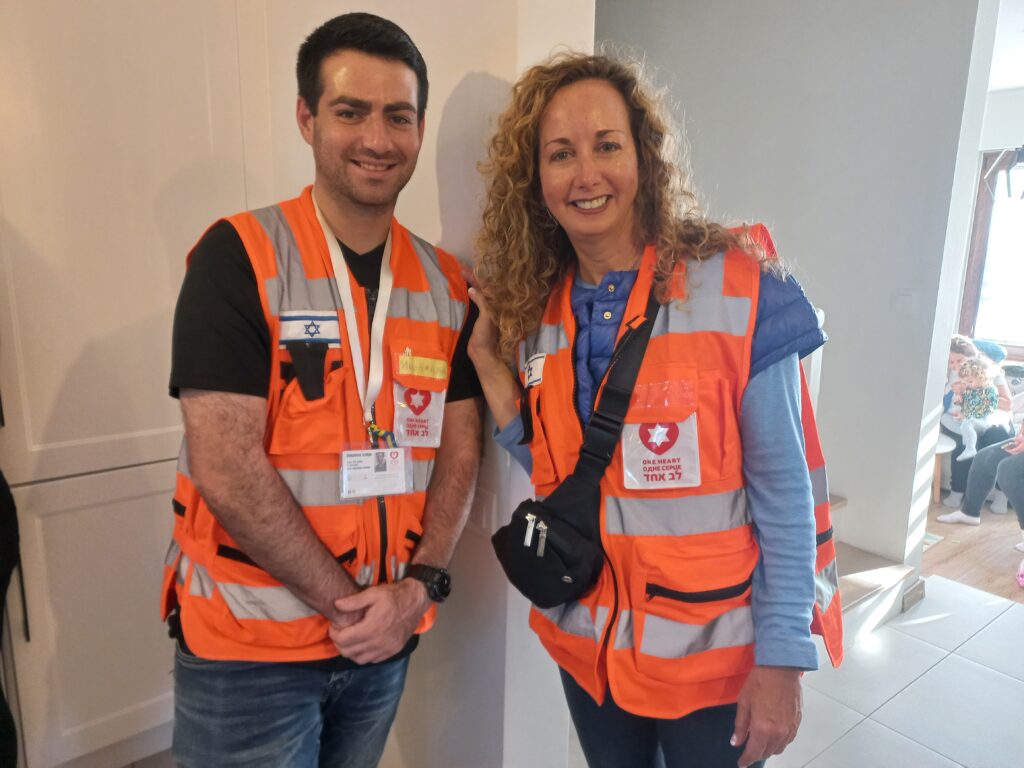About
Tag International Developed was founded in 2010 by Yossi Ives and Ricardo Leiman in order to share Israel’s unique humanitarian expertise with the developing world. Since then, Tag has delivered more than forty projects in 15 countries. Currently, our main focus is Ukraine.

Tag has focused primarily on sustainable livelihoods through agriculture, women’s health through reduction of maternal and infant mortality, and youth empowerment through technology, entrepreneurship and life skills.
Our watchwords are expertise, innovation and collaboration. We collaborated with established local partners to identify needs and priorities. We combined local knowledge with external expertise to stimulate innovation along with a holistic and sustainable development strategy.
Tag’s current focus is on providing humanitarian support to those affected by the full-scaled invasion of Ukraine, and through the Leiman Fund supporting education with our partners around the world.
Tag’s focus areas
Support before, during and after crises
Emergency Medicine
When a medical emergency occurs, there are often only a few minutes in which to intervene. Effective and timely intervention is critical. Tag partnered with Magen David Adom (MDA), Israel’s world-class national medical emergency response service, to provide training in emergency medicine for ER doctors, ambulance drivers, paramedics and volunteers.
In Azerbaijan, Georgia, Indonesia and Ukraine, we worked with their Red Crescent and Red Cross societies to develop emergency medicine training centers to enhance emergency response capacity. In Kenya we provided first aid training for wildlife rangers protecting rare wildlife from poachers, and provided them with first aid kits. In Ukraine, we delivered four ambulances to the Red Cross in Kyiv.
Disaster Preparedness
The world is witnessing increasing natural and man-made disasters and there is an evident need to be adequately prepared. Tag assisted affected communities to be better prepared for rescue, recovery and reconstruction, from trauma care to citizen mobilization. We ran initiatives in Sri Lanka, Indonesia, and Myanmar to empower local leadership and harness the capacity of communities to respond to disasters as an opportunity for development.
Tag to co-hosted the Asia Network for Disaster Preparedness for several years, convening professionals from Indonesia, Sri Lanka, Maldives, Jordan, Turkey, Myanmar, India and Israel, to foster regional cooperation, exchange best practices and develop pioneering solutions. Tag contributed a chapter to a UN book on disaster preparedness, called Together we Can.
Humanitarian relief
From its inception, Tag has been involved in extending humanitarian aid in times of crisis, whether supplying water after devastating floods in Myanmar, a delegation of doctors to Haiti, or assistance in Kenya during COVID. For the last few years, Tag has been active in supporting our partners across Ukraine with a range of assistance, from firewood and warm clothes during the winter to medicines and eyeglasses for the elderly.
Sharing expertise for sustainable livelihoods
Agriculture is the backbone of most developing countries and a key driver for growth and progress. Tag delivered agriculture-based livelihood improvement solutions that stimulate climate resilience through local capacity building and adapted technologies. We developed the capabilities of local farmers by bringing in valuable Israeli agricultural expertise to introduce new crop varieties, enhance farming methods and improve water usage to increase yields and crop quality.
In Sri Lanka, Tag established an agriculture training center and model farm and we introduced and tested the impact of drip irrigation in the heart of an area battered by war and the Asian Tsunami.
In Rwanda, we helped develop agriculture training at a the Agohozo Shalom Youth Village.
In Kenya, we installed rain harvesting systems at various elementary schools in the Homa Bay area, which not only provided reliable and clean water for the children. As part of that project, we supported the development of school farms to grow crops and raise animals, which enabled the schools to grow food to generate food to feed the students and income for the school.
In South Shan State in Myanmar, we ran a major project called Plan Bee, an advancement of the beekeeping sector by introducing innovation and technical expertise, developing markets, and creating economic opportunities for women. Funded by UNOPS to improve livelihoods and food security of vulnerable communities and rural farmers, our project included an establishing a beekeeping center, a honey business, an extensive network of on and off field training, and the introduction of a range of new techniques and equipment.
In the Myanmar Dry Zone, Tag also worked on a large scaled initiative to enhance the sesame sector by improving the quality and quantity of sesame yield and advancing its market access and value for thousands of farmers.
In Kenya, we delivered a rice growing project helping 2,000 farmers to improve irrigation and climate resilience, facilitating access to agricultural inputs alongside Integrated Pest Management and providing extensive training as well as support with market development. Our revolving loan fund empowered women to develop successful farms and agri-businesses.
Imparting life skills through sport
Developing young people and improving their chance of a better future is critical to changing the prospects for developing countries. Tag worked to empower young people, with a special emphasis on girls, through improved education and mentoring. Our youth projects also incorporated arts, sport and skills training.
In Kenya, Tag ran a multi-year project called Water Works for Girls, which introduced a pioneering rainwater harvesting system into schools to provide clean drinking water, improved hygiene and sanitation and support girls in education. The project worked to remove the barriers to girls’ education in three schools. The project also brought innovative approaches and therapies to detect, mitigate and treat gender-based violence to ensure schools are safe places for girls.
A model horticulture plot, greenhouse and poultry farm have been established to demonstrate agricultural best practice. Small farms were created in each school to teach children about farming whilst generating income to support poorer children in education.
Also in Kenya, Tag ran i-tek, a project to grant help youth from remote and marginalized communities to gain access to information and communications technology (ICT).
In Azerbaijan, Tag delivered a youth resilience project in land mine affected areas incorporating soccer, outdoor adventure and first aid. In Myanmar, we worked to enhance employability skills for disadvantaged youth by providing training and mentoring, and facilitating direct linkages with employers to unlock employment opportunities. We helped disadvantaged youth in Myanmar to obtain technology and entrepreneurship skills that give access to employment opportunities.
Tag established Hoops for Kids, an ongoing basketball-based youth empowerment project leveraging basketball to teach life skills and to inspire at-risk youth. The project operates in slums and communities of two major cities in Kenya – Nairobi and Kisumu – to instill vital life skills in at-risk and vulnerable youth. Our efforts extend to developing an integrated life-skills training program to increase the effectiveness of life skills education for youth.
More than 15,000 children in Kenya have benefited from combined life-skills education and basketball training. The project features after-school centers, educational basketball clinics and youth mentoring, along with providing athletic equipment and coaching. We also introduced Surprise You Good, an award program to recognize excellence, and thereby inspire achievement.
Savings lives of mothers and babies
Empowering women and improving their health and wellbeing contributes significantly to the resilience and health of the entire population. We worked with local partners to develop innovative community-based solutions that empower and inform women and help them gain access to healthcare. Our projects also focused on reducing maternal and infant mortality through education around health, hygiene and nutrition, and through improved detection and treatment.
In Kenya, Tag delivered a girls empowerment program, addressing gender-based violence and access to education, as well as a water-related project in several schools aimed at improving hygiene and health for young women.
In Turkey, we collaborated with a local partner to increase access of marginalized Roma women living in disadvantaged communities in Istanbul to modern healthcare.
Our project with Bedouin women in Israel aimed at reducing diabetes and other chronic health challenges through awareness raising, public education and individualized support.
In Indonesia we provided training and support to community health workers, nurses and doctors, aimed at reducing Infant and maternal rural mortality rates. This project improved health outcomes through introducing innovative teaching methods, bolstering involvement in rural areas, and by increasing the capabilities of hospital-based personnel. We also funded a mobile health unit to travel among rural areas to disseminate knowledge, train village health professionals, and collect health data. Professionals in the van provide women’s healthcare services.
In Myanmar, our Drop of Milk project together with Rotary, worked to address the quality of maternal health care in rural villages. The project aimed to reduce maternal mortality rates through improved holistic community health in the rural Southern Shan State of Myanmar. The project adopted a variety of means to strengthen capacities of maternal and child healthcare providers to deliver both quality community and hospital-based health services.
More specifically, we upgraded delivery room facilities and introduced medical kits that improve early identification of at-risk pregnancies, and we strengthened village to hospital referral systems by utilizing m-health technology. We also provided training for midwives and community-based health providers on early identification of developmental delays in small children.
Tag’s approach
Sharing expertise for sustainable impact
Tag shares proven knowledge with those who need it most. Tag has access to worldclass expertise that is particularly relevant to developing countries. We offer communities and organisations tried and tested methods with the help of knowledge partners that share their valuable expertise.
Triggering exponential growth through innovation
Tag specializes in innovation. Our projects adapt creative solutions to social challenges. We introduce unique and cutting-edge approaches, harnessing new technologies and methodologies. Tag staff combine vast experience with continuous innovation. Tag invests seed funding to catalyse exponential growth and enhance local capacities.
Working with our partners for the greater good
Tag collaborates with leading local organizations around the world. Our implementing partners possess exceptional local knowledge and practical capabilities. These partnerships ensure that projects suit local needs and conditions. Tag leverages humanitarian activity to build bridges between diverse groups.

a brief history
In 2006, Yossi Ives and Ricardo Leiman teamed up with the idea of capitalizing on Israel’s unique humanitarian expertise knowhow to help developing countries. Initially, they partnered with MDA (Magen David Adom), Israel’s national ambulance and emergency medicine organization. In 2009, they decided to establish a new organization, Tag International Development, to expand this work.
During the first years of its existence (2010-2012), Tag ran projects in a multitude of countries (Rwanda, Ukraine, Azerbaijan, Sri Lanka, Indonesia, Solomon Islands, Georgia, Myanmar, Kenya, etc.) covering a wide range of initiatives (community development, disaster relief, livelihood creation, emergency medicine, disaster preparedness, agricultural development, women’s health, etc.).
In 2013, Tag decided to focus its efforts on two countries – Kenya and Myanmar – and in three areas of activity: Agriculture, women’s health and youth development. As a result, Tag opened offices in Myanmar (Yangon and Pindaya) and Kenya (Nairobi and Kisumu). In 2013, Tag was awarded a grant from the UN agency UNOPS under their LIFT program in Myanmar, which was concluded in 2019 – Tag’s largest single project to date.
Due to the outbreak of the COVID pandemic in early 2020, Tag was forced to greatly curtail its international operations. In early 2021, a military coup put great limitations on Tag’s ability to function in Myanmar. In 2020, Tag established the Leiman Fund, with its primary focus on supporting access to secondary education. It currently has eight partnerships in Ukraine, Belarus and Argentina, providing scholarships to students and other help to schools.
Due to the outbreak of the full-scale invasion of Ukraine in February 2022, Tag’s main focus has shifted to a range of emergency and ongoing assistance to those affected. One of Tag’s largest projects was running shelters in Rzeszow, Poland for women refugees from Ukraine during 2022-3. Tag has assisted and continues to assist across Ukraine, mainly in Odessa, Zhytomyr, Mykolayev, Vinitsiya, and Dnipro. Tag support has ranged from providing firewood and warm clothes during the winter and air conditioning for schools and community centers for the summer, to food distribution and soup kitchens for the elderly and the vulnerable, to helping to convert basements into bomb shelters for orphanages and schools.

